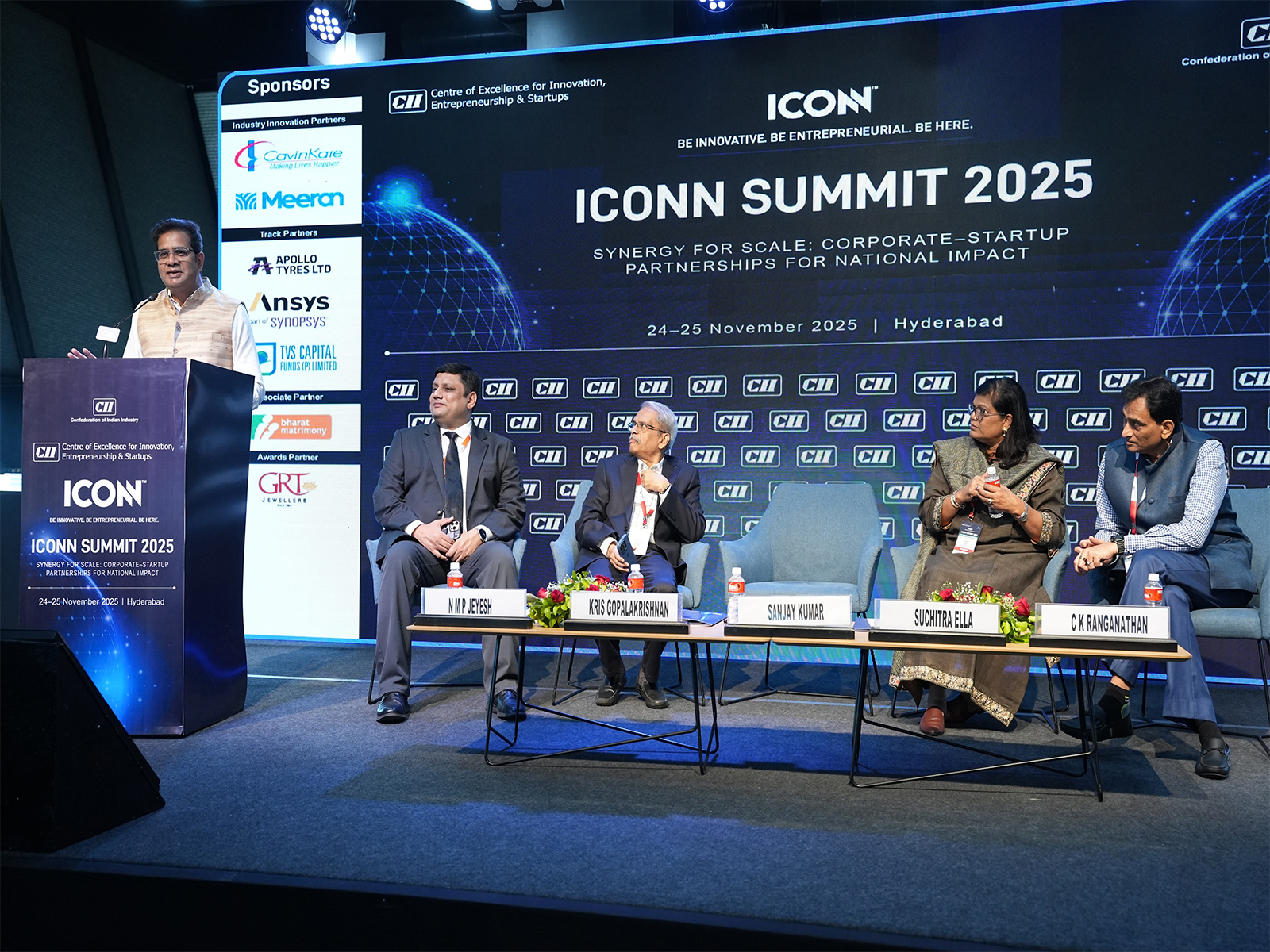Tech sector emissions, energy use grow with rise of AI: Report
Jun 06, 2025
Geneva [Switzerland], June 6: Tech sector carbon emissions continued their rise in recent years, fueled by rapid advances in artificial intelligence (AI) and data infrastructure, according to Greening Digital Companies 2025.
The report, produced by the International Telecommunication Union (ITU), the UN agency for digital technologies, and the World Benchmarking Alliance (WBA), tracks the greenhouse gas (GHG) emissions, energy use, and climate commitments of 200 leading digital companies as of 2023, the most recent year for which full data is available.
While the annual report calls on digital companies to address their growing environmental footprint, it also indicates encouraging progress. Worldwide, more companies had set emissions targets, sourced renewable energy and aligned with science-based frameworks.
"Advances in digital innovation - especially AI - are driving up energy consumption and global emissions," said ITU Secretary-General Doreen Bogdan-Martin. "While more must be done to shrink the tech sector's footprint, the latest Greening Digital Companies report shows that industry understands the challenge, and that continued progress depends on sustaining momentum together."
According to the latest edition of the report, electricity consumption by data centres, which power AI development and deployment, among other uses, increased by 12 percent each year from 2017 to 2023, four times faster than global electricity growth.
Four leading AI-focused companies alone saw their operational emissions increase in the reporting period by 150 per cent on average since 2020. This rise in energy that is either produced or purchased - known as Scope 1 and Scope 2 emissions - underscores the urgent need to manage AI's environmental impact.
In total, the amount of greenhouse gas emissions reported by the 166 digital companies covered by the report contributed 0.8 per cent of all global energy-related emissions in 2023.
The 164 digital companies that reported electricity consumption accounted for 2.1 per cent of global electricity use, at 581 terawatt-hours (TWh), with 10 companies responsible for half of this total.
"Digital companies have the tools and influence to lead the global climate transition, but progress must be measured not only by ambition, but by credible action," said Lourdes O. Montenegro, Director of Research and Digitisation at WBA. "This report provides a clear signal to the international community: more companies are stepping up, but emissions and electricity use continues to rise."
Although emissions continued their rise, Greening Digital Companies 2025 highlights steps taken by many tech firms that suggest a strengthening of transparency and accountability.
Eight companies scored above 90 per cent in the report's climate commitment assessment on data disclosure, targets and performance. This is up from just three in last year's report.
For the first time, the report includes data on companies' progress toward meeting climate targets and realising stated net-zero ambitions. Almost half of the companies assessed had committed to achieving net-zero emissions, with 41 firms targeting 2050 and 51 aiming for earlier deadlines.
Other trends among the 200 digital companies featured in the report include:
Renewable energy adoption: 23 companies operated on 100 percent renewable energy in 2023, up from 16 in 2022.
Dedicated climate reporting: 49 companies released standalone climate reports, signaling greater transparency.
Scope 3 consideration: The number of companies publishing targets on indirect emissions from supply chains and product use rose from 73 to 110, showing increasing awareness of industry impacts.
Source: Emirates News Agency








